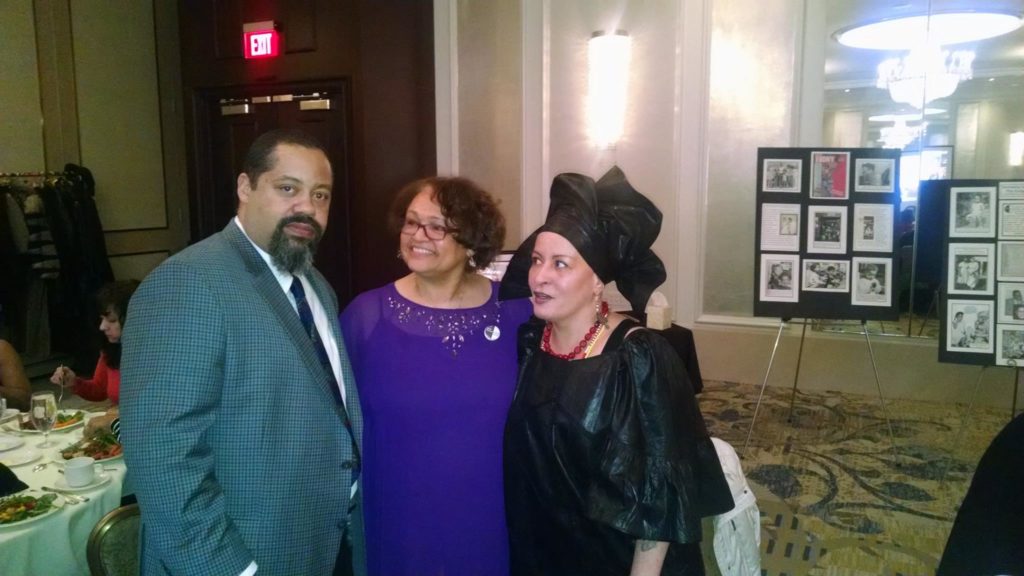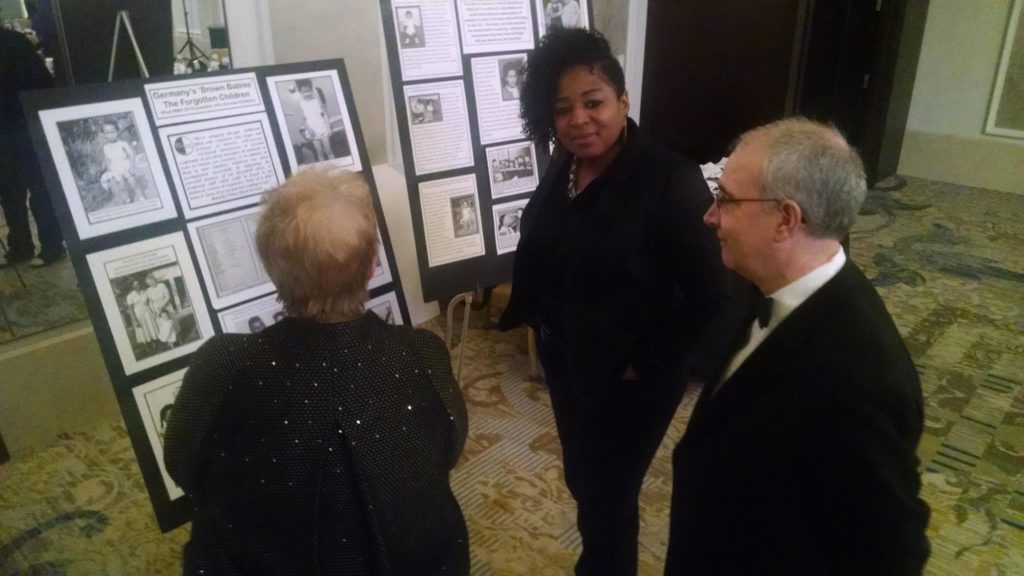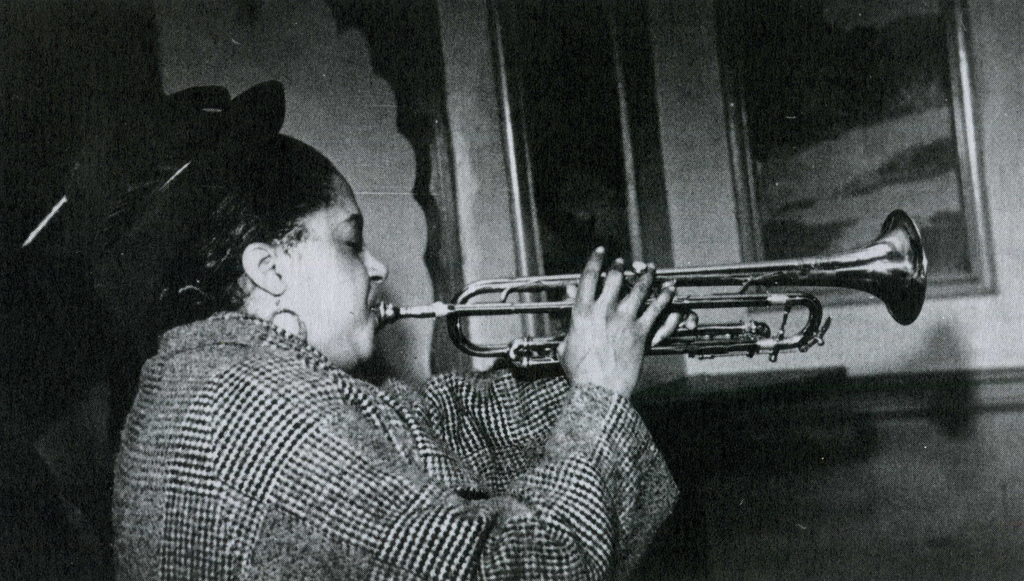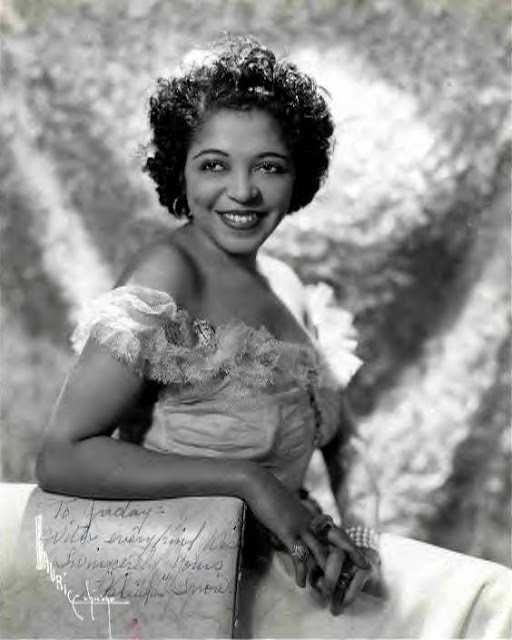1688 Germantown Quaker Petition Against Slavery
GERMANTOWN, where the first protest against slavery was written in the new world, is a historic neighborhood in Northwest Philadelphia, PA. It was founded by German Quaker and Mennonite families from Krefeld, a city in North Rhine-Westphalia in Germany.
In 1688, the PETITION AGAINST SLAVERY was drafted by Francis Daniel Pastorius and signed by him and three other Quakers living in Germantown. The petition, based upon the bible’s golden rule, “Do unto others as you would have them do unto you,” urged for the abolishment of slavery. It was also one of the first written public declarations of universal human rights. It argued that every human, regardless of belief, color, or ethnicity, had rights that should not be violated.

THONES KUNDERS’ HOUSE’
5109 Germantown Avenue, Philadelphia PA, where the
1688 Petition Against Slavery was written. From Jenkins (1915)

Here in 1688, at the home of Tunes Kunders, an eloquent protest was written by a group of German Quakers. Signed by Pastorius and three others, it preceded by 92 years Pennsylvania’s passage of the nation’s first state abolition law.
Remembrance of the Germantown Protest came to life again when celebrated American poet John Greenleaf Whittier in 1872 made Pastorius the hero of his narrative poem, “The Pennsylvania Pilgrim.” A Quaker-born abolitionist, Whittier directly addressed the meaning of Pastorius’s long forgotten legacy, ending his poem with the following words:
For, ere Pastorius left the sun and air,
God sent the answer to his life-long prayer;
The child [John Woolman] was born beside the Delaware,
Who, in the power a holy purpose lends,
Guided his people unto nobler ends,
And left them worthier of the name of Friends.
And to! the fulness of the time has come,
And over all the exile’s Western home,
From sea to sea the flowers of freedom bloom!
And joy-bells ring, and silver trumpets blow;
But not for thee, Pastorius! Even so
The world forgets, but the wise angels know.
Black History Month 2016: Three-star General, Lt. General Nadja West
Congratulations!!!
Lt. Gen. Nadja West has been appointed as the Army’s 44th Surgeon General. With this appointment comes a promotion to lieutenant general, which makes West the Army’s first black female 3-star general as well as the highest ranking female of any race to graduate from West Point.
 West started as a child in Germany five decades ago. She came into the world a mischlingskinder or “brown baby”—one of many children borne of liaisons between African American servicemen and German women. Orphaned as a baby, she was adopted at nine months by Oscar and Mabel Grammer. Oscar Grammer worked as a chief warrant officer in the U.S. Army. Mabel Grammer was a civil rights activist and journalist who, at one point, wrote for the Afro American Newspapers. Together the couple adopted 12 children; West was the youngest.
West started as a child in Germany five decades ago. She came into the world a mischlingskinder or “brown baby”—one of many children borne of liaisons between African American servicemen and German women. Orphaned as a baby, she was adopted at nine months by Oscar and Mabel Grammer. Oscar Grammer worked as a chief warrant officer in the U.S. Army. Mabel Grammer was a civil rights activist and journalist who, at one point, wrote for the Afro American Newspapers. Together the couple adopted 12 children; West was the youngest.
On Tuesday, February 9 (2016), Lt. Gen Nadja West will be honored in an official ceremony. The promotion and ceremony follows the 54-year-old’s confirmation by the Senate as the new Army Surgeon General and Commanding General, U.S. Army Medical Command (MEDCOM) as of December. As such, West will be assisting and advising the Secretary of the Army and Army Chief of Staff in relation to all health care matters in the Army, in addition to overseeing development, organization, policy direction, and other matters relative to the Army-wide health care systems.
“I was once an orphan with an uncertain future,” said West of the promotion and the new responsibilities facing her in the future. “And I am incredibly honored and humbled to lead such a distinguished team of dedicated professionals who are entrusted with the care of our nation’s sons and daughters, veterans and family members. While our Army and our nation face tough challenges in the future, I am confident that collectively we have the right skills, commitment, and talent to meet those challenges with mission success,” she added.
The Washington D.C. area-native holds a Bachelor of Science in Engineering from the United States Military Academy at West Point and a Doctorate of Medicine from George Washington University School of Medicine. She has held previous assignments as Commanding General, Europe Regional Medical Command; Commander of Womack Army Medical Center, Fort Bragg, N.C.; and Division Surgeon, 1st Armored Division, Army Europe and Seventh Army, Germany. Originally published here.
Black History in the making!
Brava!
Three-Star General,
Lt. General Nadja West,
We Salute You!
2016 Black German Cultural Society Exhibit
* SAVE THE DATES * March 26-27, 2016
The Black German Cultural Society Exhibit at
 THE 2016 BLACK HISTORY & CULTURE SHOWCASE!
THE 2016 BLACK HISTORY & CULTURE SHOWCASE!
 Additional information at: Black History and Culture Showcase
Additional information at: Black History and Culture Showcase
BGCS Supports 2015 Adoptee Citizenship Act (S.2275)
BGCS fully supports the 2015 Adoptee Citizenship Act (S.2275). This Act is a critically needed piece of legislation pertaining to the lives of thousands of adults who were brought to the US for adoption as children, were never fully naturalized as citizens by their adoptive parents, and then fell through the cracks of the Child Citizenship Act of 2000. These adults now face risk of deportation and cannot fully participate as citizens in U.S. society: they cannot vote or obtain passports, and often face difficulties in opening bank accounts, securing financial aid, obtaining a driver’s license, joining the military, obtaining marriage licenses, and finding jobs.
The 2015 Adoptee Citizenship Act closes the loophole created in the Child Citizenship Act of 2000, which failed to include those over age 18 at the time the Act came into effect when granting automatic citizenship. While the Act does not resolve all citizenship loopholes for internationally adopted adults, it is a major step forward in equality and justice for many.
BGCS suggests that individuals exercise caution and restraint in making decisions and taking any action in support or opposition to any legislation until they have fully educated themselves on the purpose and impact of it. We recommend that you read the actual bill, the current laws it will change, and the opinions of a variety of commentators, both for and against any legislation.
The Adoptee Citizenship Act can be found HERE. If you would like to contact your legislators to express your support for or opposition to this bill, you can look them up HERE.

Black German Cultural Society™ Banquet 2015
Black German Cultural Society Banquet March 2015
Honoring Our Own ~ Honoring Each Other
With hearts filled with joy, compassion and understanding, German-born, Post WWII, US Occupation Babies, stand shoulder to shoulder in recognition and honor. This, in of itself, would have been enough. However, the evening was this, and so much more.
Brown Baby, Save The Children Melody by Diana Ross
(BGCS BANQUET 2015 THEME SONG)
Listen as you peruse our wonderful photographs.

BGCS Secretary and Search Consultant Henriette Cain receiving award for her dedication to BGCS, her Integrity, and for reuniting countless German-born US occupation children with their maternal and paternal families.

L to R: Sister C’s, friend, Sister C of the Lutheran Seminary of Mt Airy. Rabbi Claire Green (German-born US occupation survivor) and her husband Steve.

89 year old German Irmagard and friend üta. Irmagard married an Italian American soldier, but said she remembered seeing the German mother’s with thier little ‘brown babies.’ She came bearing gifts for all.
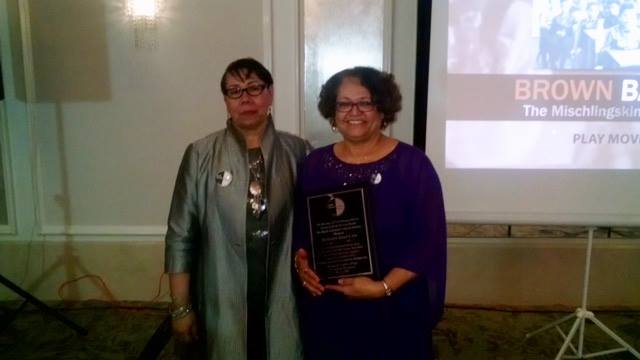
A bit overcome with emotion. L. to R. BGCS Founding President Shirley Gindler-Price & BGCS Secretary and Search Consultant Henriette Cain

Surprise award given to Shirley Gindler-Price, Founding President of BGCS, presented by Honoree Henriette Hood-Cain, BGCS Secretary & Search Consultant & BGCS Family Member Angelika Scurlock
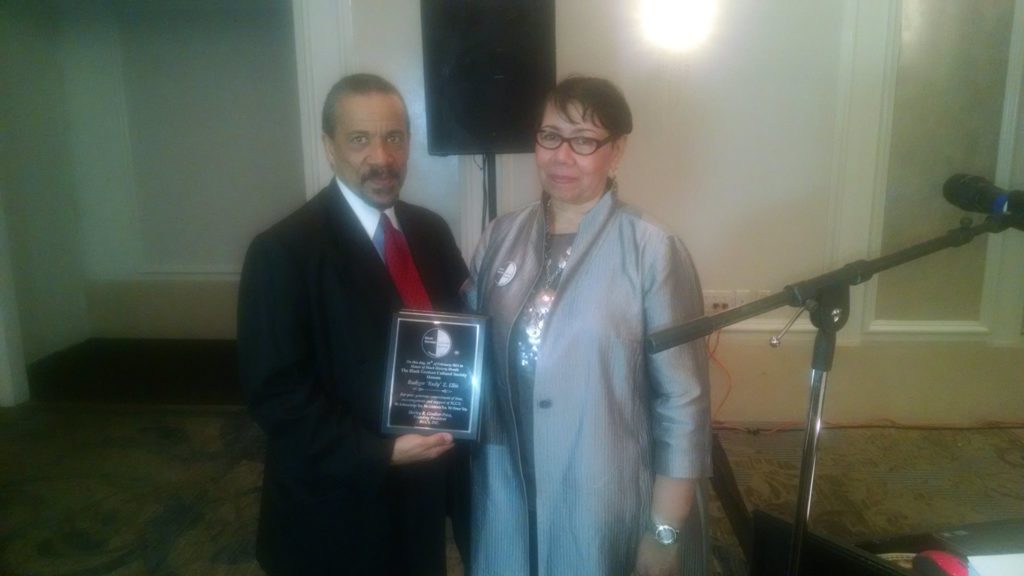
Rudy Ellis, German-born US Occupation child receiving award from Shirley Gindler-Price, Founding President,

L. to R. Mr. Tyson K Price of BGCS, son of Founding President Shirley Gindler-Price with German-born US occupation Survivor Rudiger “Rudy” Ellis.

Judith Schnitzler-Bell Idowu and Shirley, 1st and 2nd generation German-born US occupation children,

Attendees captivated by the presentation about German ‘Brown Babies’ the Forgotten Children. Forefront: Mr Vernon V Price of BGCS, husband of Founding President, Shirley Gindler-Price.

L to R:German-born US occupation survivor Wolfgang and banquet attendees from the Asian Federation of the United States and Yusef, raido personality (4 from left

German-born US occupation survivor, Keynote speaker, Daniel Poprocki Cardwell receiving award for his support of BGCS, his personal sacrifices and tireless research on behalf of the German ‘Brown Babies’.
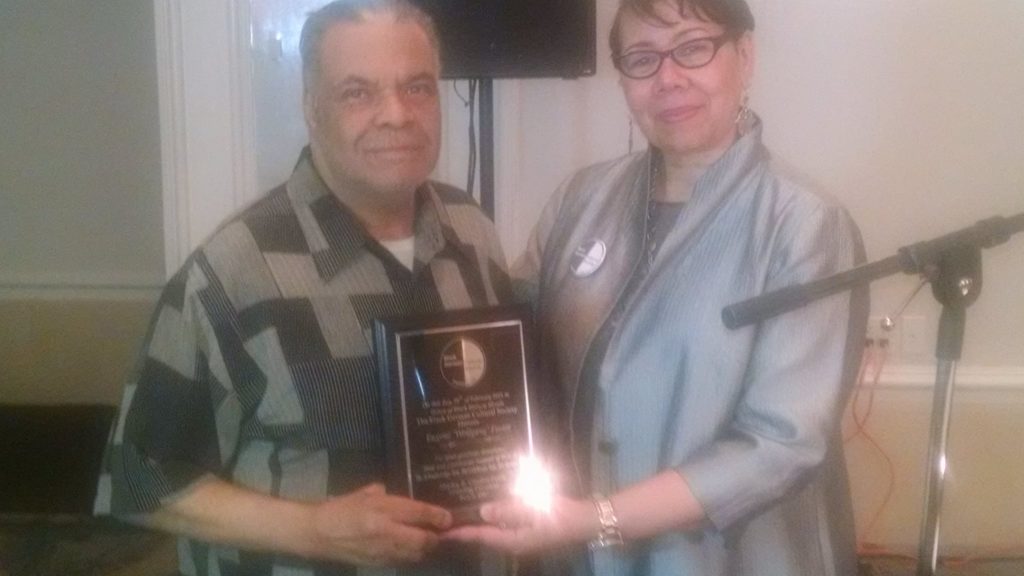
German-born US Occupation survivor Wolfgang receiving his plaque award for his generous contributions and support of BGCS

L to R: Founding President of BGCS Shirley Gindler-Price, Daniel Cardwell, Angelika Scurlock, Michael Carwell, BGCS Secretary and search consultant Henriette Hood-Cain

Honoring Each Other: With hearts filled with joy, compassion and understanding, 1st and 2nd generation German-born, Afro-German, Post WWII, US Occupation children survivors stand shoulder to shoulder in recognition and honor.

German-born, US occupation survivor Rudy receiving award for generous donation of time and support of BGCS

German-born Post WWII, US Occupation Survivors , Founding President Shirley Gindler-Price, BGCS Family Angie Scurlock, BGCS Secretary/ Search Consultant Henriette Cain

German-born US occupation brothers (L) Daniel Paprocki Cardwell and brother Michael Cardwell. Born Jan 1947 in Bamberg, Germany, Michael, upon receiving a Certificate of Recognition from BGCS, said it was the first certificate he had ever received in his life. He said he was going to take it home and frame it.

Surprise award given to Shirley Gindler-Price, Founding President of BGCS, presented by Honoree Henriette Hood-Cain, Secretary & Search Consultant for BGCS and Angelika Scurlock, part of the BGCS family.
ADDITIONAL PHOTOGRAPHS CAN BE VIEWED ON OUR FACEBOOK PAGE.
BGCS Award Banquet 2015
02/28/2015: UPDATE: WE ARE FILLED TO CAPACITY! A HARDY THANK YOU TO EVERYONE WHO HAS SUPPORTED THIS EFFORT!
“HONORING OUR OWN – HONORING EACH OTHER”
Honoring all Afro-German children, so-called German ‘Brown Babies’,
born to German women and African American soldiers in post WWII Germany.
“WE ACKNOWLEDGE YOU. WE CELEBRATE YOU. WE HONOR YOU.”
Additional details at BGCS BANQUET
![]() If you have any questions please contact Founding President Shirley Gindler-Price at 267-251-7331 or email BGCSbanquet@gmail.com
If you have any questions please contact Founding President Shirley Gindler-Price at 267-251-7331 or email BGCSbanquet@gmail.com
![]()
Black German Cultural Society Display at Black History & Culture Showcase
BGCS™ German ‘Brown Baby’ Exhibit. The display of post WWII Afro-German children has become a popular exhibit at the Black History and Culture Showcase in Philadelphia , PA. Hundreds of people flock to hear about the mixed-race children fathered by African American soldiers in post-WWII Germany; many of whom were adopted by African American families and immigrated to the United States.
Civil Rights in Postwar Germany to Present
The Civil Rights Act was signed 50 years ago in the White House in Washington DC on July 2nd, 1964. Two Afro-Germans, Jeannine and John Kantara, husband and wife living in Germany, were asked to write about the state of civil rights in Germany for the Morgan State University‘s Winter 2014: Morgan Global Journalism Review on civil rights. Their contribution is the featured article in the Review and is a must read for anyone interested in the historic as well as the present-day experiences of people of color in Germany.
Mischlingskinder – What Civil Rights Means to Mixed-Race Germans – Civil Rights in Postwar Germany to Present. To read please click HERE or on the cover image:
MGJR-Aufsager from Kantara Films & Documentaries on Vimeo.
Jeannine Kantara is an activist and co-founder of the Initiative Schwarze Menschen in Deutschland – ISD-Bund eV (the Initiative Black People in Germany) and the black German magazine afro-look. She has written for the Die Zeit, a national weekly newspaper, as well as the daily newspaper Tageszeitung. She is also a contributing author to Black Berlin – The German metropolis and her African diaspora in the past and present.
John Amoateng Kantara is an award-winning journalist and documentary filmmaker based in Berlin, specializing in science and technology. He has been recognized by the German Academy for Technological Sciences, won the prestigious George-von-Holtzbrink Prize for Science Journalism and the German Journalism Prize for Space and Aeronautics. In 2013, the Otto-Brenner Foundation awarded Kantara with the prize in critical journalism for his documentary Killing Via Joystick – the Drone War and its Consequences.
From the archives of Kantara Films & Documentaries: 1971 Film About Black Germans
Black History Month: Afro-German Actor & Singer: Günther Kauffman
Günther Kaufmann, Afro-German Actor & Singer
(June 16, 1947 – May 10, 2012)
 Günther Kaufmann (16 June 1947 – 10 May 2012), was what the Germans call a “Besatzungskind” (war or occupation child), one of thousands of children born between 1945 and 1949 as a result of relationships between German women and American soldiers. The son of an African American soldier and a German mother, Günther Kaufmann was born in June 1947 in the Hasenbergl district of Munich. Kaufmann’s father, whom he never knew, returned to the US before he was born in Munich. As a Mischlingskinder (mixed race child), he faced a difficult childhood and youth in postwar West Germany.
Günther Kaufmann (16 June 1947 – 10 May 2012), was what the Germans call a “Besatzungskind” (war or occupation child), one of thousands of children born between 1945 and 1949 as a result of relationships between German women and American soldiers. The son of an African American soldier and a German mother, Günther Kaufmann was born in June 1947 in the Hasenbergl district of Munich. Kaufmann’s father, whom he never knew, returned to the US before he was born in Munich. As a Mischlingskinder (mixed race child), he faced a difficult childhood and youth in postwar West Germany.
“The White Negro of Hasenberg, is the title of his autobiography. In the 70s and 80s, he starred in 16 Rainer-Werner Fassbinder films, including “Berlin Alexanderplatz,” “The Marriage of Maria Braun” and “Querelle”. In the ’90s he had roles in TV series including “Derrick” and “The Old Man”.

In November 2002, for the love of his terminally ill wife, he falsely confessed to causing the death of his accountant, Hartmut Hagen, and was sentenced to 15 years in prison. He confessed to the deed even though he was not guilty because he wanted to protect his cancer-stricken third wife, Alexandra, who had induced three accomplices to carry out the crime. By deception, she had received a loan of 850,000 marks from the accountant, who later pressed for its return. He was later killed after three men entered his house to destroy incriminatory evidence; Kaufmann wanted to spare his wife the ordeal of dying in prison.
After spending almost three years in prison, he was released in 2005 after the real criminals were exposed. The following year he was in court again because his original false statement had resulted in two others being held on remand. He was given a suspended sentence of 22 months.
After his release, he resumed his career, notably performing in the German children’s films “Vicky the Viking” (2009) and Michael “Bully” Herbig’s, the “Terrible Sven.”
Kaufmann, was a singer as well, which was showcased in three of Fassbinder’s films. He sang the opening theme song for Whity. However, his best song was, “So Much Tenderness,” written by Peer Raben and Fassbinder.
Kaufmann died on the evening of 10 May 2012 at the age of 64 having suffered a heart attack while out for a walk in the Grunewald locality of Berlin. A passer-by and paramedics tried to resuscitate him on site for two hours.
He is survived by his son, Davy and daughter Eva.
Filmography: IMBd
Tribute to Günther Kaufmann by Tyron Ricketts, Black German Actor, Musician & Activist
Günther Kaufmann & son David Kaufmann, a Musician and Entertainer
We Honor & Remember Mr. Günther Kaufmann!
Black History Month: Valaida Snow, A Sensation in Europe
Valaida Snow: The Queen of Trumpet and Song
“Singer, trumpeter and dancer. Child star, jazz pioneer and world traveler. Legend and myth. If Valaida Snow’s life wasn’t already sensational enough, she sensationalized it further, freely evading and embellishing the truth of her triumphs, trials and tribulations. But even after her life has been measured against the historical record, it remains a grand and compelling tale, and Valaida herself a grand and compelling figure,” reads the write-up on the back cover of Canada’s great jazz writer Mark Miller’s High Hat, Trumpet and Rhythm: The Life And Music Of Valaida Snow (2007).
Born in 1904 in Chattanooga, Tennessee, Ms. Valaida Snow was an African-American globetrotting jazz musician, entertainer, and instrumentalist. She was raised on the road in a show-business family. A child prodigy, she learned to play cello, bass, banjo, violin, mandolin, harp, accordion, clarinet, trumpet, and saxophone at professional levels by the time she was 15. She also sang and danced. After focusing on the trumpet, she quickly became so famous at the instrument that she was named “Little Louis” after Louis Armstrong, who used to call her the world’s second best jazz trumpet player besides himself.
She played concerts throughout the USA, Europe and China. Her most successful period was in the 1930’s when she became the toast of London and Paris. Around this time she recorded her hit song “High Hat, Trumpet, and Rhythm”. She performed in the Ethel Waters show Rhapsody in Black, in New York.
Valaida Snow~High Hat Trumpet & Rhythm~1935
In the mid-1930’s she made films with her husband, Ananias Berry, of the Berry Brothers dancing troupe. After playing New York’s Apollo Theatre, she revisited Europe and the Far East for more shows and films.
As the story has been written numerous times, while touring through Denmark in 1941, she was arrested by the Nazis during the German occupation of Denmark and kept at Vestre Fængsel (Western Prison), a Danish prison in Copenhagen that was run by the Nazis. She was released on a prisoner exchange in May 1942. According to jazz historian Scott Yanow, “she never emotionally recovered from the experience.”
Author and researcher Jayna Brown in her book Babylon Girls: Black Women Performers and the Shaping of the Modern claims that Snow stayed in wartime Denmark by choice and that the story of her imprisonment was a press generating ploy invented by her management to set the stage for her return to America. Mark Miller’s biography High Hat, Trumpet and Rhythm: The Life of Valaida Snow also dismantles the fictions of her life and paints a portrait of a talented performer, albeit one that didn’t shy from stretching the truth to suit her needs for a bit of play in the press.
Valaida Snow performing the song “Patience and Fortitude” (1946) with The Ali Baba Trio
Upon returning to the states, Snow was determined to to continue her musical career. Although she was unable to fully retrieve her artistic prowess, she continued to perform in various venues until the 1950’s when she toured with a group called “The Honey Drippers,” who were pioneers in a new music that would soon sweep the world: Rhythm & Blues.
Valaida Snow died of a brain hemorrhage on May 30, 1956, in New York City, backstage during a performance at the Palace Theatre.
While the truth of her stories of imprisonment may be in question, what is undeniably true is that Ms. Snow was an entertainer extraordinaire; a Black woman from the U.S.A. who, against the odds, survived in Europe during the Nazi era!
We Honor & Remember Ms. Valaida Snow!
Additional Information:
LISTEN to NPR: Fresh Air’s jazz critic reviews Mark Miller’s High Hat, Trumpet, and Rhythm: The Life and Music of Valaida Snow. It’s a biography of jazz singer and musician Valaida Snow, aka “Little Louis.
READ Valaida Snow’s story in her own words: Life In A Nazi Prison Camp: Three Boiled Potatoes and Six Lashes Every Day with a Bull Whip Were Regular Portions for Valaida Snow, Versatile Bandleader, The Afro American – April 24, 1943.
Extensive ARTICLE: Valaida Snow: Forgotten Genius!












